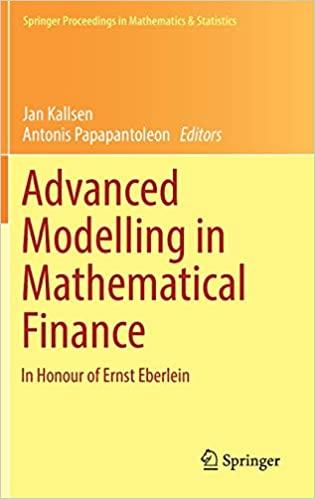Question
1. You have estimated that you need $6,500 in liquid assets for an emergency fund. You currently have only $1,000, which is invested in a
1. You have estimated that you need $6,500 in liquid assets for an emergency fund. You currently have only $1,000, which is invested in a savings account earning 3 percent nominal interest, compounded monthly. Your current budget leaves $290 per month to apply to this goal. If you plan to add this money to your savings at the end of every month, how much will you have after one year? (Round answer to 0 decimal places, e.g. 1,250.)
2. Donna estimates that her take-home pay for the coming year will be $1420 per month. She expects total monthly expenses to be as follows: housing and utilities, $800; food, $200; auto, gas, and insurance, $220; credit card payment, $60; and other expenses $100. The balance on her credit card is $4300, and she currently pays 18 percent interest on this balance. Donna would like to reduce her credit card debt. If she decides to budget all of her net monthly cash flow to this goal, how long will it take (in months) to pay off her credit card? A) 61
B) 43
C) 70
D) 33
3. Your bank pays a nominal rate of 4.70% interest on a savings account. If the interest is compounded monthly, what is the annual percentage yield (APY) of this account? A) 4.70%
B) 5.10%
C) 4.80%
D) 4.84%
4. The purpose of reconciling a budget is to:
A) adjust income and spending so that your expenses do not exceed your income.
B) implement the budget plan.
C) balance your assets to your debt and net worth.
D) adjust income so that your surplus does not exceed your budgeted savings.
Step by Step Solution
There are 3 Steps involved in it
Step: 1

Get Instant Access to Expert-Tailored Solutions
See step-by-step solutions with expert insights and AI powered tools for academic success
Step: 2

Step: 3

Ace Your Homework with AI
Get the answers you need in no time with our AI-driven, step-by-step assistance
Get Started


